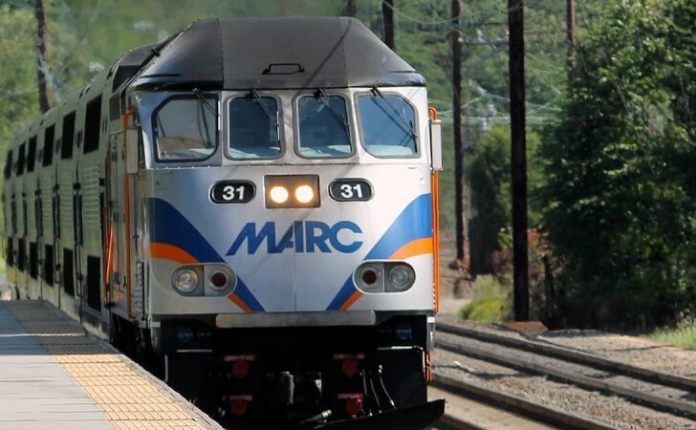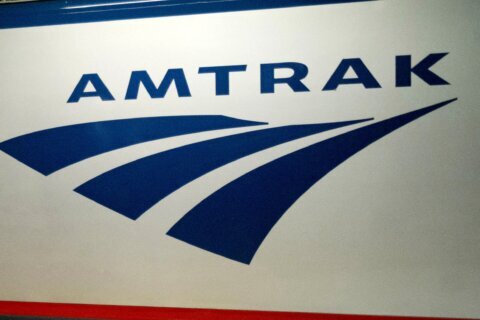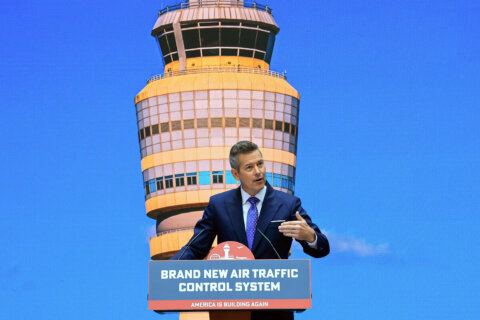This article was republished with permission from WTOP’s news partners at Maryland Matters. Sign up for Maryland Matters’ free email subscription today.
This content was republished with permission from WTOP’s news partners at Maryland Matters. Sign up for Maryland Matters’ free email subscription today.

For many years, the state of West Virginia paid nothing for the MARC commuter rail service that carries hundreds of residents to jobs in Maryland and Washington, D.C., every day.
For the last two years, officials in the Mountaineer State have been warned that the gravy train would soon end, and that they had better compensate Maryland more fully for the six trains — three eastbound and three westbound — that MARC runs to and from the eastern panhandle cities of Harpers Ferry, Duffields and Martinsburg.
Despite the warnings, the West Virginia legislature has been unwilling to come up with the $3.4 million that Maryland is seeking to maintain the current schedule.
Maryland’s response: a steep reduction in service.
MDOT will hold hearings next month on a plan to eliminate four of the six trains that run between Union Station in D.C. and West Virginia, effective Nov. 4.
“The State of Maryland cannot continue to absorb the cost of transit services provided outside of the State at the expense of Maryland taxpayers,” reads a statement posted online by the Maryland Department of Transportation.
“(We) notified the West Virginia State Rail Authority, more than two years ago of a required payment for Fiscal Year 2020,” the statement continued. “The West Virginia State Legislature appropriated only $1.1 million for MARC Train service in FY20, $2.3 million less than the required payment.”
Commuters who rely on the service are worried about the impact a cutback in service would have.
“We are really concerned about the proposal,” said Rod Snyder, a Jefferson County resident who commutes to his job near Union Station four days a week. “The service is too important to see it go away. … We’ve had solid train service for so many years, it would be a shame to see it go.”
A cutback in train service from West Virginia to Frederick and points south would undoubtedly lead to an increase in vehicle traffic and strain parking at MARC and other public transit stations, state lawmakers from both Maryland and West Virginia have warned.
“Where are they going to park? I have no idea,” Del. Carol Krimm (D-Frederick) told the Frederick News-Post.
“The Brunswick station will be completely overrun,” said Snyder. “There is not adequate parking to handle all the West Virginia commuters at that one station.”
Brittany Marshall, MTA’s director of media relations, dismissed such concerns.
“Ample parking is available at the Brunswick and Monocacy stations,” she said in a statement.
The other concern, officials and commuters have raised, is the added traffic volume.
“There is a major bottleneck on the road between West Virginia and Maryland,” said Snyder, who runs a non-profit that focus on sustainable agriculture. “If you add hundreds of additional cars at that critical point in the morning and the evening, it’s going to make the situation worse.”
West Virginia Del. John Doyle (D-Jefferson County) thinks a robust turnout at next month’s public hearing could buy some time for additional negotiations between the two states.
“I understand where Maryland is coming from,” he said.
Doyle has asked the governor of West Virginia to dip into his contingency funds to extend service one more year, while talks continue. He also thinks the West Virginia communities served by MARC need to find some funds as well.
“One of the things we have to do on our side, in West Virginia, is to convince the local governments in Jefferson and Berkeley counties, to come up with at least something to help,” he said.
“That is one of the reasons it’s been difficult to persuade the state legislature to come up with $3 million-plus.”
Doyle said it’s unclear whether Maryland’s demand — $3.4 million a year — represents the actual costs that MTA incurs running commuter rail to West Virginia.
“I fault West Virginia for that, too,” he said, “because West Virginia hasn’t been willing to sit down and have a meaningful negotiation with Maryland.”
Snyder, the non-profit executive, echoed Doyle’s view.
“I’m actually more frustrated with the elected officials in West Virginia that don’t seem to understand the value of the train service to the eastern panhandle,” he said.
According to the MTA, 250 people board MARC trains at a West Virginia station each day, and 250 take the westbound trains each afternoon.
Currently MARC runs three trains from Martinsburg to Union Station each weekday morning, departing at 5 a.m., 5:25 a.m. and 6:25 a.m.
MTA proposes retaining only the earliest train.
Homebound commuters face the loss of Train 879, which leaves D.C. at 5:40 p.m., and Train 881, which departs at 6:20 p.m. Train 875, which departs at 4:25 p.m. and reaches Martinsburg at 6:39 p.m., would be the only surviving option.
A public hearing on the proposed service cutbacks will be held on Saturday, Sept. 7, from 10 a.m. to noon, at the Charles Town Public Library, 200 E. Washington St. in Charles Town, W.Va.
Comments can be emailed to HearingComments@mdot.maryland.gov.







